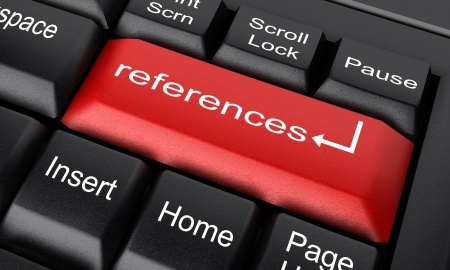References
Once you’ve sailed through the interview process and are under consideration for a job opening, your prospective employer will almost certainly ask for a list of references. Reference checking is a way by which future employers can confirm their favorable impression of you (while making sure there isn’t a dark secret lurking in your employment record).
If you’ve always been a great worker and have left earlier jobs on good terms, you have little to worry about. But what if you left under bad conditions, or if you don’t have any work references?
Because of today’s tight job market and intense competition for qualified workers, it’s possible to get hired with no references at all–or even with poor references. But why take the chance? No matter what your situation, here are some simple ways to make sure your references are stellar:
If You Have Good Work Experience
Before you list a former manager or co-worker as a reference, call them to ask if it’s okay. Tell them how important this new job opportunity is to you, and ask if they have any hesitation about referring you. If they do, talk through their concerns. If they’re still less than enthusiastic, don’t list them as a reference; find another co-worker or manager to use.
If You Don’t Have Any Related Work Experience
If you don’t have related work experience, stretch a little. Go back to any and all previous employers, whether it’s the owner of the local ice cream shop or the mother for whom you babysat in high school. They can vouch for your work ethic, reliability, and honesty. Personal references–especially those from teachers–are also valuable. Don’t list family members or friends unless they have a well-respected name in the industry you’re hoping to enter.
If You Left Previous Jobs Under Bad Circumstances
If you suspect you’ll get a negative review from a former employer, you have one of two choices: eliminate them from your list of references or contact them to sort things out.
Because of concerns about liability, most companies won’t provide subjective information when asked for references; the most they’ll do is confirm the dates of employment, job title, and salary. But if you want to make sure you’re not being badmouthed, you can contact your previous employer and explain that you’re seeking a new job and that a poor report could hamper your ability to get the position.
If your contact still isn’t willing to give you a neutral review, your best bet is either to locate a more sympathetic manager or co-worker at the same company or simply eliminate that job from your list of reference checks.

